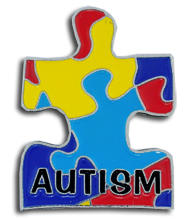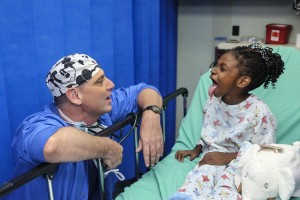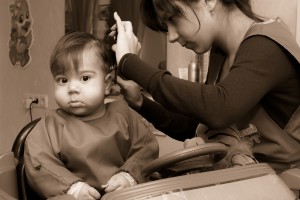
Image from asipages.com in an article explaining what the puzzle piece means.
For years, Autistic people have been condemning the use of the colorful jigsaw puzzle piece that stands as an international symbol for autism awareness. But their voices haven’t been able to overpower the media push to use the symbol. It’s everywhere: on clothing, keychains, coffee mugs, license plates, organization logos and promotional materials. Many families use the logo to advertise “autism awareness,” their personal connection to autism, or their commitment to finding a cure. The symbol was designed to represent the complexity of autism and how little is known about it. On the surface, it seems like a memorable and harmless advocacy symbol. But I don’t buy anything with a puzzle piece on it because of how many Autistics have condemned the use of this symbol. Certainly not ALL Autistics condemn the puzzle piece (and each Autistic person has the right to define and interpret and identity with it as they wish); however, it’s important for neurotypicals to note that it’s not that some Autistic people don’t like it–it’s that they are deeply offended by it, and many NTs are unaware. As NTs, it is less important with how we interpret the puzzle piece, and critically important how the Autistic people in our lives perceive it.
There are plenty of detailed articles available online that articulate why some condemn this symbol. This post aims to concisely summarize why the puzzle piece logo has become so problematic for many in the Autistic community. The resources at the end of this article link to other sources discussing what the Autistic community is saying about the puzzle piece logo.
…
Read More










